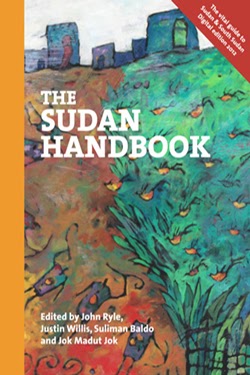
"The Sudan Handbook," based on the Rift Valley Institute's (RVI) successful Sudan Field Course, is an authoritative and accessible introduction to Sudan, written and edited by outstanding Sudanese and South Sudanese scholars and recognized international experts.
The handbook covers Sudan, South Sudan and the North-South borderlands though a set of essays by leading specialists, including Abdelrahman Ali Mohammed, Peter Woodward, Gerard Prunier, Jerome Tubiana, Derek Welsby, and Ahmad Sikainga. It offers an authoritative introduction to both countries, rooted in a historical account of the development of the state.The book is not limited to history and politics. It includes chapters on Sudanese popular music, the oil industry, and the archaeology of the early states on the Nile.
The text is accompanied by purpose-drawn maps, a glossary, capsule biographies, a chronology. and a bibliography. The Sudan Handbook grew out of the RVI’s annual Sudan and South Sudan Course. According to Randall Fegley, writing in African Affairs, it is one of "a tiny minority of rare reference works that can be pulled off the shelf as a compendium of facts or read cover to cover as a collection of well-written narratives." He notes the RVI's "tremendous influence on academics, policy makers, activists, and field workers."
Tom Porteous of Human Rights Watch, writing on the Lawfare website, welcomes the RVI’s efforts "to collect, preserve, and transmit knowledge and understanding of Sudan’s ground-truth."
A reviewer from South Sudan, Peter Run, writing in the Australasian Review of African Studies, comments on what he describes as a "succinct and comprehensive text." He highlights the ‘insightful analysis’ of oil and its influence on the Sudanese political economy and notes the timeliness of the discussion of "the clash between the traditional mechanism of conflict resolution and the state’s judicial system."
Related News
Research

Nov 14, 2024
School News

Sep 9, 2024
Research

Jul 15, 2024
